Panel | Carbon: Building Block of Agriculture
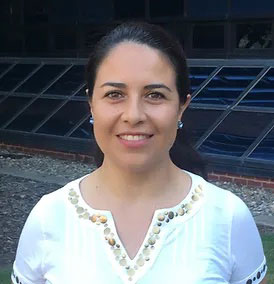
Caro Córdova
Moderator, Assistant Professor in Agronomy & Horticulture, UNL
Dr. Carolina Córdova is an Assistant Professor and Statewide Soil Health Specialist in the Department of Agronomy and Horticulture at the University of Nebraska-Lincoln. Her research/extension work aims to conceptually and experimentally unite soil health and the sustainable intensification of agriculture while studying mechanisms to increase carbon sequestration and reduce farmer reliance on synthetic fertilizers. Dr. Cordova strives to integrate agroecological principles, biogeochemistry, and modeling in her research and teaching to understand soil-plant-atmosphere interactions in important agricultural settings across temporal and spatial scales. Currently, Dr. Cordova is co-leading the Water and Integrated Cropping Systems Soil Health Team that aims to build the Soil Health Program for Nebraskans by promoting the Soil Health Clinics across the state, the NE peer-to-peer soil health network, and Soil Health On-farm research. She believes soil health is the foundation of regenerative agriculture and a healthy ecosystem.
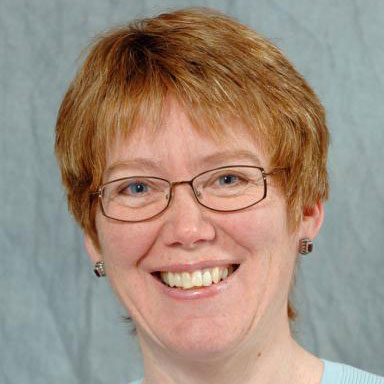
Rhae Drijber
Professor in Agronomy & Horticulture, UNL
Dr. Rhae Drijber is a Professor of Soil Microbial Ecology with 75% research and 25% teaching in the Department of Agronomy & Horticulture at UNL. Her current research focuses on patterns and processes of soil microbial communities important to plant productivity and health, soil carbon sequestration, and ecosystem sustainability. Our approach describes and quantifies the spatial and temporal dynamics of soil microbial communities as they exist in situ in natural and managed ecosystems using biochemical, enzymatic, and molecular approaches. Key projects include assessment of arbuscular mycorrhizal fungal diversity and function in agricultural and natural ecosystems, identifying underlying microbial processes linked to C and N cycling in maize cropping systems subjected to varying N fertilizer input and management, and the impact of climate change on microbial function, specifically litter decomposition, nutrient cycling, and soil organic matter storage, including plant-microbe interactions essential to plant productivity and ecosystem resilience.
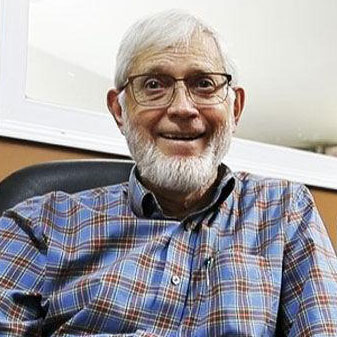
Dave Vetter
CEO/Owner of Grains Place Foods
David Vetter is a farmer and owner of Grain Place Foods in Nebraska. He was among the first farmers in the region to be certified organic. David’s father, Don, began to adopt organic farming methods in the early fifties when he began to question the science and ethics of the emerging agricultural technologies of the late 1940s and early 1950s. David earned a BS in agronomy/soil science from UNL and a Master of Divinity from United Theological Seminary. He returned in 1975 and helped the farm become certified organic. More than forty years later, the farm near Marquette, NE has grown to include Grain Place Foods, a family business that helps steward other farms in their journey toward organic production, and Grain Place Foundation, a 501(c)3 dedicated to education and research. David has been honored many times, including an Organic Leadership Award from the Organic Trade Association, Organic Farmer of the Year from the Midwest Organic and Sustainable Education Services (now Marbleseed), Organic Pioneer Award from the Rodale Institute, and the Methodist Federation for Social Action Gary Schlosser Justice Award.
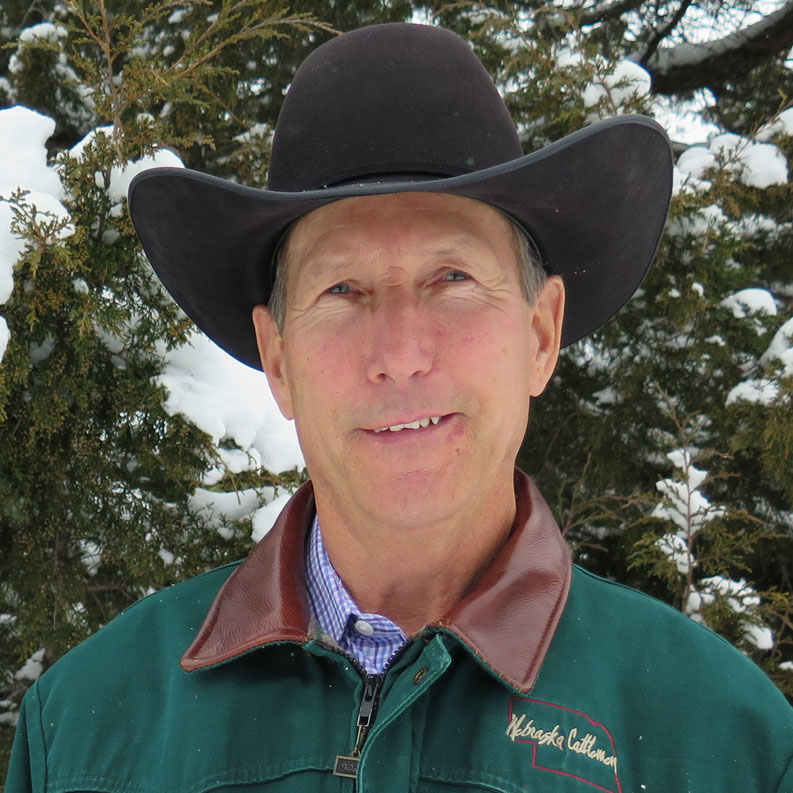
Homer Buell
Co-Owner/Rancher of Shovel Dot Ranch
Homer Buell, land steward and rancher, is a fourth-generation co-owner of the Shovel Dot Ranch near Rose, Nebraska, and the recipient of the 2012 Nebraska Leopold Conservation Award. He is a board member of the Sand County Foundation and the Sandhills Task Force, two organizations that work to promote conservation on private lands. He is past chair of National Cattlemen’s Beef Association’s Environmental Stewardship Awards Program. Buell is the immediate past President of Agriculture Builders of Nebraska and on University of Nebraska President Ted Carter’s Advisory Council.

Amy Schmidt
Associate Professor in Biological Systems Engineering, UNL
Dr. Schmidt leads an integrated research and extension program at UNL focused on supporting socially and environmentally responsible livestock production to enhance soil, water, and air quality. Specifically, she assesses and demonstrates the impacts of manure and organic soil amendments on soil physical, chemical, and biological properties, and related transport of contaminants to surface and ground water. Demonstrating the connection between improved soil quality and improved water quality is a primary focus of her current outreach efforts. In response to worldwide concerns about antibiotic resistance, she also collaborates across disciplinary boundaries to understand manure management practices that can mitigate the transport of antimicrobial resistance mechanisms in the environment originating from land-applied livestock manure. She leads a nationwide outreach program called the iAMResponsible Project, conducts AMR-related research, and teaches a graduate-level course titled “Antimicrobial Resistance from a One Health Perspective,” which connects students across multiple disciplines and academic institutions in learning about their individual and collective roles in mitigating AMR. Her desire to train the “next generation” of extension engineers and water quality specialists is the basis for her unique approach to engaging undergraduate and graduate students in both research and the delivery of evidence-based recommendations and education through extension programming. Dr. Schmidt earned B.S. and M.S. degrees in Agricultural Engineering from Iowa State University and a Ph.D. in Biological Engineering from Mississippi State University.
Panel | Carbon – a complex cycle that sustains life
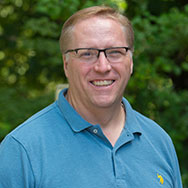
Andy Suyker
Moderator, Associate Professor in School of Natural Resources, UNL
Dr. Suyker is an applied micrometeorologist in our School of Natural Resources on East Campus. He has been measuring carbon fluxes since 1989 (that’s 33 years) in ecosystems ranging from grasslands in the Great Plains to peatlands in the Boreal Forest in Canada to agricultural fields here in Nebraska. He is part of a carbon sequestration team funded on a long-term basis by the AmeriFLux Core site network and the USDA-ARS’s Long- term Agricultural Research network (LTAR). The long-term carbon flux data they collect is made available to scientists all over the world for their own carbon research/modeling projects.

Michael Kaiser
Assistant Professor in Agronomy & Horticulture, UNL
Dr. Kaiser joined UNL in January 2018 as an Assistant Professor for Applied Soil Chemistry with an expertise in soil organic carbon research since about 20 years. Before joining UNL, he worked for universities and research units in Germany and the US. His research is focusing on the effects of land use, soil management, soil type, and soil depth on storage of organic carbon in soil as well as on factors controlling the stabilization and destabilization of carbon in soil. For his research, Dr. Kaiser is using deep soil coring, long-term field experiments, greenhouse experiments, and laboratory experiments. He is also teaching several undergraduate and graduate soil science classes at UNL.
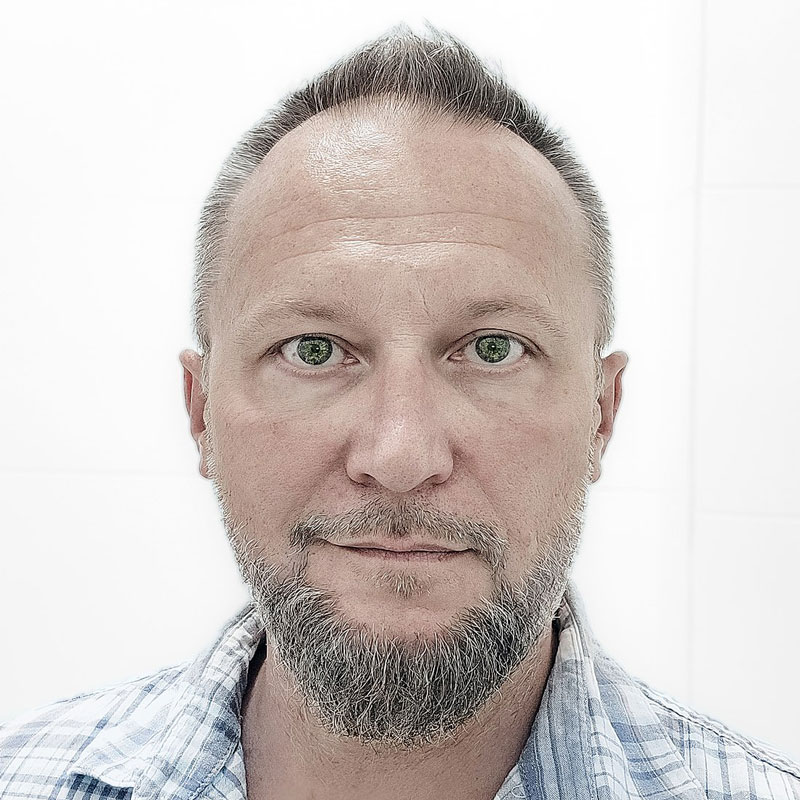
George Burba
Science & Strategy Fellow, LI-COR
Dr. Burba is a LI-COR Science & Strategy Fellow, Global Fellow at Daugherty Water for Food Global Institute, and a Graduate Adjunct Faculty at the University of Nebraska. He is a bio-atmospheric scientist and author of multiple books and papers on carbon and water measurements, with books on the curricula in 50+ universities, and in libraries across the world including Oxford, Stanford, Princeton, Yale, Cambridge, Cornell, Duke, MIT, Caltech, Dartmouth, Imp College London, Karlsruhe, Max Planck, and papers cited in IPCC and FAO Reports, Nature, Science, etc. He holds 13 patents granted in the US and internationally in 40+ countries on successfully commercialized technology, devices, and methods. Dr. Burba has taught over 200 courses, seminars, and invited lectures, including those at numerous universities, AmeriFlux, Argonne, AsiaFlux, BASC, Battelle, EPA, ICOS, InGOS, IITM, NEON, OzFlux, WMO, etc., and served on advisory boards, review panels, steering, grant, search and organizing committees, etc. at over 40 organizations and groups including IPCC, AmeriFlux, DWFI, Elsevier, EU Commission, ICOS, InGOS, NCSE, NEON, FFAR, Israel Ministry of Science, Netherlands Organisation for Scientific Research, WMO, etc.
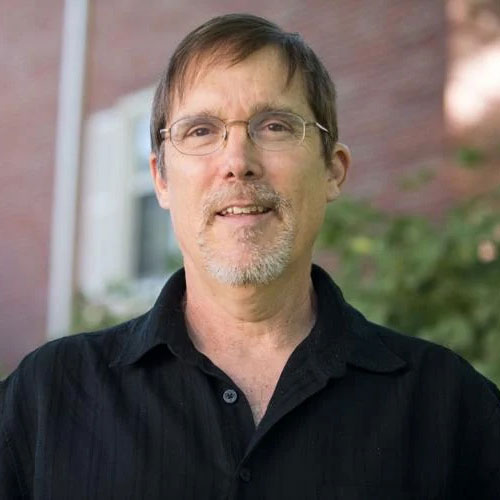
John Gamon
Professor in the School of Natural Resources, UNL
Dr. John Gamon completed his bachelor’s degree in Biology from Yale University, and his Ph.D. degree in Botany from UC Davis, where he studied photosynthesis in wild plants. His postdoctoral studies were at Carnegie Institution (Stanford, CA), where he developed new ways of studying photosynthesis with remote sensing. After that, he taught biology and Earth system sciences at California State University, Los Angeles, and the University of Alberta, Edmonton, Canada. He has continued research on remote sensing of plant physiology, photosynthesis and biodiversity, and evaluated methods for measuring biospheric carbon uptake and storage. Since 2016, he has worked at University of Nebraska – Lincoln, where he directs the Nebraska Earth Observatory, the airborne research program of the Center for Advanced Land Management Information Technologies. John also enjoys playing traditional folk fiddle, harvesting olives and grapes, and applying the principles of carbon sequestration at a family farm in northern California.
Panel | Carbon sequestration – what is possible?

Chuck Rice
Moderator & Panelist, Department of Agronomy, Kansas State University
Dr. Charles (Chuck) Rice is a University Distinguished Professor and holds the Vanier University Professorship at Kansas State University. He is a Professor of Soil Microbiology in the Department of Agronomy. Dr. Rice teaches courses and conducts research on soil carbon and nitrogen, soil health, microbial ecology, and climate change impacts on agricultural and grassland ecosystems. Dr. Rice has served on the UN Intergovernmental Panel on Climate Change to author a report on Climate Change in 2007 and 2014 and was among scientists recognized when that work won the Nobel Peace Prize in 2007. Dr. Rice was named the Hugh Hammond Bennett Awardee from the Soil and Water Conservation Society which recognizes exceptional service and national and international accomplishments in the conservation of soil, water, and natural resources. Dr. Rice chairs the Board on Agriculture and Natural Resources of the U.S. National Academies of Science, Engineering, and Medicine and received the honorary title of “National Associate” for exceptional service.
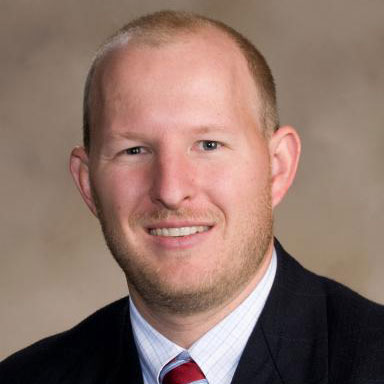
Adam Liska
Associate Professor in Biological Systems Engineering, UNL
Dr. Adam Liska completed his Ph.D. at the Max Planck Institute for Molecular Cell Biology and Genetics in Dresden, Germany. He was a post-doctoral researcher in the department of Agronomy and Horticulture at UNL, before joining the faculty in Biological Systems Engineering in 2009, where he was an endowed chair for 10 years. Since 2005, his research has primarily focused on climate change issues, particularly estimation of greenhouse gas emissions from agricultural systems. He has extensive expertise in the life cycle assessment of agricultural products, particularly biofuels. He has worked on modeling the dynamics of soil organic carbon in corn systems since 2007. In 2014, he published a highly influential article in Nature Climate Change that coupled modeling of soil organic carbon dynamics with supercomputing for continuous corn systems. In 2022, he completed the first greenhouse gas emissions inventory for the state of Nebraska.
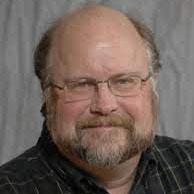
Dave Wedin
Professor in School of Natural Resources, UNL
Dr. Dave Wedin has studied grassland ecology since receiving his PhD at the University of Minnesota in 1990 and arriving at UNL in 1998. Much of his research has asked how grassland carbon and nitrogen cycling respond to factors including climate, elevated atmospheric carbon dioxide, anthropogenic nitrogen loading, and soil disturbance. These factors affect nutrient cycling and carbon sequestration directly, but also indirectly by driving shifts in vegetation composition, for example from warm season (C4) to cool season (C3) grass dominance. In 2004, he wrote: “Interactions among herbivory, fire, drought, nutrient limitation, and competition with other herbaceous and woody species were the focus of grassland ecology for most of the 20th century. The challenge for grassland ecology in the 21st century will be to continue juggling these ecological processes while not dropping the new balls thrown at it by global change.”
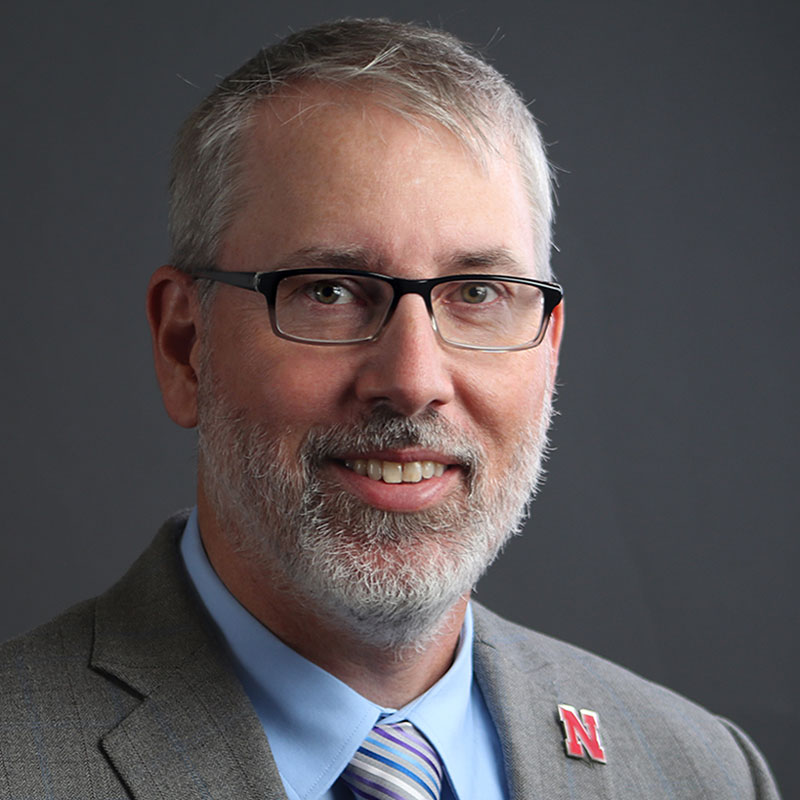
Galen Erickson
Professor in Animal Science, UNL
Dr. Galen Erickson holds the Nebraska Cattle Industry Professor of Animal Science professorship in the Department of Animal Science at the University of Nebraska-Lincoln and is a Professor and Beef Feedlot Extension Specialist for Nebraska. He also serves in a leadership role for Beef Innovation: A Hub for Beef Excellence. Research and extension activities focus on beef cattle production and nutrition, particularly the interaction between nutrition, management, and environmental issues including air quality and greenhouse gases. Graduate students working with him have published approximately 460 extension articles, 440 abstract presentations, and 170 scientific journal articles.
Keynote: Complexities in soil carbon reservoirs
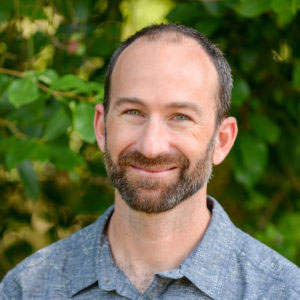
Jonathan Sanderman
Keynote Speaker, Woodwell Climate Research Center
Dr. Jonathan Sanderman’s work focuses on the role that soils can play in climate mitigation and sustainable food production. He strives to understand the processes that add, remove, and transform carbon in soils, ranging from coastal marshes to tropical forests and working farmlands. Throughout his career, he has uncovered under-recognized complexity in soil carbon reservoirs. Dr. Sanderman’s research encompasses both place-based, experimental work and large-scale computer modeling. Currently, much of Dr. Sanderman’s attention is focused on developing high-quality, cost-effective methods for measuring soil carbon to support carbon markets in the agricultural sector. He works with a diverse group of partners and collaborators in industry, academia, and environmental advocacy. Dr. Sanderman received his PhD from the University of California, Berkeley, in 2007, was a research scientist at CSIRO in Australia for 6 years and has been a scientist at Woodwell Climate since 2015.
NRCS perspective on carbon
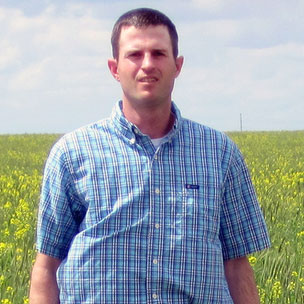
Aaron Hird
USDA-NRCS
Aaron Hird is the State Soil Health Specialist for the United States Department of Agriculture, Natural Resources Conservation Service (USDA-NRCS) in Nebraska. Aaron has been working with cover crops and soil health with the NRCS for more than 17 years and is excited to work and promote the Nebraska NRCS Soil Health Initiative. Aaron promotes Soil Health across Nebraska using live demonstrations to showcase the results of these soil health improvements and how healthy soil is resilient, able to respond to disturbance and extreme weather. By promoting the use of Soil Health Management Systems on all types of land, Aaron and Nebraska NRCS intend to help keep Nebraska’s Soils strong and productive.
What about carbon markets in agriculture?
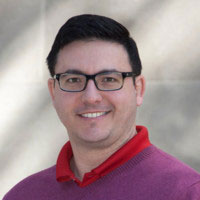
Alejandro Plastina
Associate Professor/Extension Economist, Iowa State University
Dr. Alejandro Plastina is an Associate Professor/Extension Economist in the Department of Economics at Iowa State University, specializing in agricultural production and technology, with an emphasis on farm business and financial management. His research focuses on the socioeconomic drivers of conservation practices, voluntary pest resistance management, carbon farming, and agricultural productivity. Dr. Plastina graduated from the University of Nebraska-Lincoln with an MS in Statistics in 2005 and a Ph.D. in Agricultural Economics in 2007. After graduation he served as Senior Economist at the International Cotton Advisory Committee until 2014, when he joined Iowa State University. He is the recipient of the 2022 Dean's Citation for Extraordinary Contributions to the College of Agriculture and Life Sciences at ISU, the 2021 Farm Foundation Agricultural Economics Fellowship, and the 2019 Agricultural & Applied Economics Association’s Distinguished Extension Program, among other distinctions.